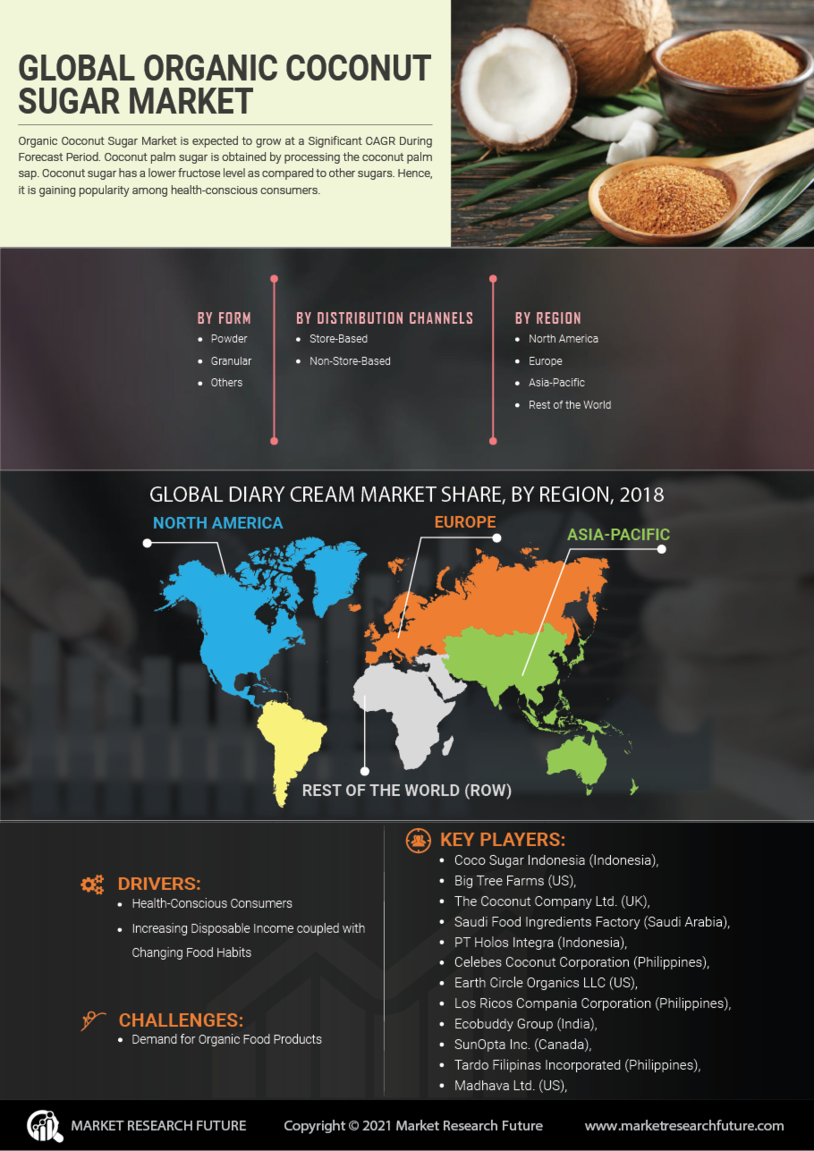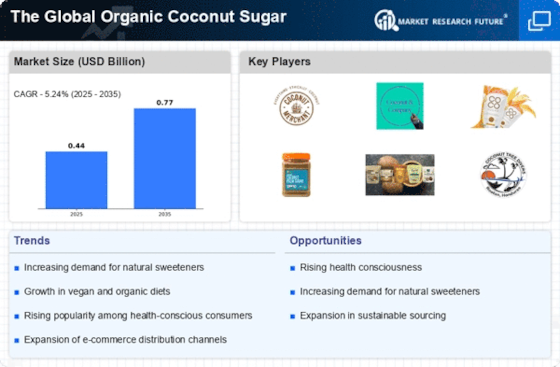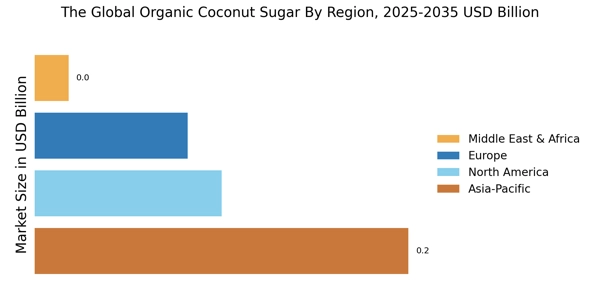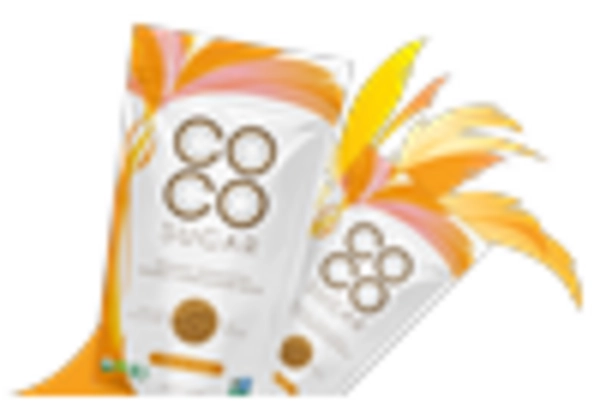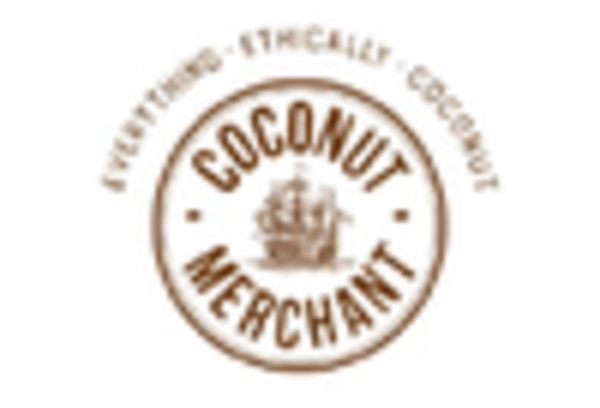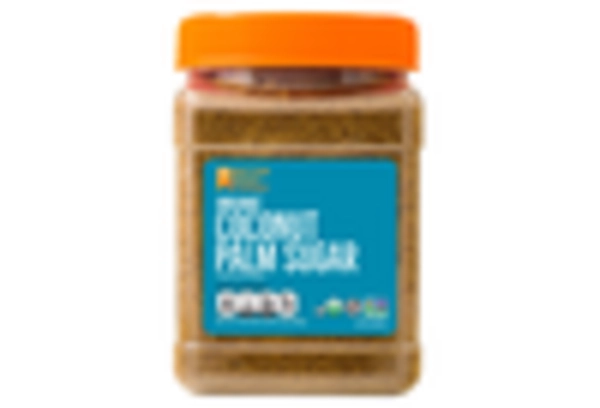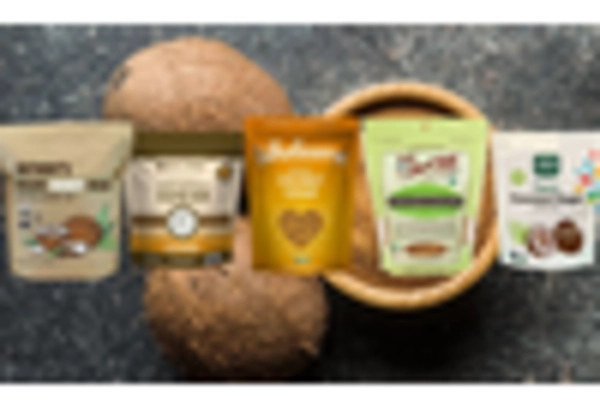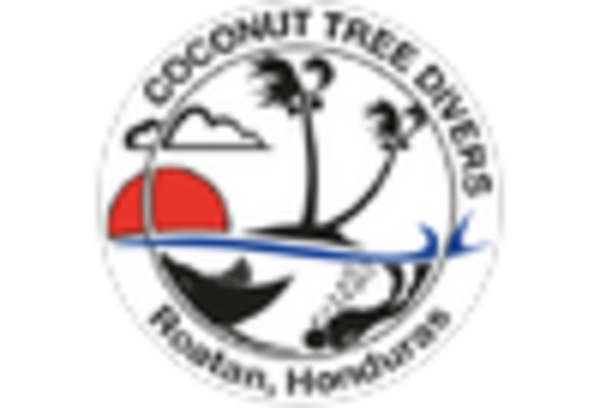The Global Organic Coconut Sugar is currently characterized by a dynamic competitive landscape, driven by increasing consumer demand for healthier and sustainable sweeteners. Key players are actively engaging in various strategies to enhance their market presence and operational efficiency. For instance, Coconut Merchant (PH) has focused on expanding its product line to include organic coconut sugar blends, which cater to health-conscious consumers. Similarly, Coco Sugar (PH) has been investing in digital marketing initiatives to reach a broader audience, thereby enhancing brand visibility and consumer engagement. These strategic moves collectively contribute to a competitive environment that emphasizes innovation and consumer-centric approaches.In terms of business tactics, companies are increasingly localizing their manufacturing processes to reduce costs and improve supply chain efficiency. This trend appears to be particularly pronounced in The Global Organic Coconut Sugar, which is moderately fragmented, with several players vying for market share. The collective influence of these key players, including Coconut Company (ID) and Coconut Sugar Co. (PH), suggests a competitive structure that encourages collaboration and innovation, as companies seek to differentiate themselves in a crowded marketplace.
In August Coconut Company (ID) announced a partnership with local farmers to enhance the sustainability of its coconut sugar production. This initiative not only supports local agriculture but also aligns with the growing consumer preference for ethically sourced products. The strategic importance of this partnership lies in its potential to strengthen the company's supply chain while promoting environmental sustainability, which is increasingly becoming a key differentiator in the market.
In September Coconut Sugar (IN) launched a new line of organic coconut sugar products specifically designed for the baking industry. This strategic move is indicative of the company's focus on niche markets, allowing it to cater to specific consumer needs while expanding its product offerings. By targeting the baking sector, Coconut Sugar (IN) is likely to capture a segment of the market that values high-quality, organic ingredients, thereby enhancing its competitive positioning.Furthermore, in October 2025, Coconut Grove (PH) unveiled a new digital platform aimed at streamlining its distribution channels and improving customer engagement. This digital transformation is crucial as it not only enhances operational efficiency but also positions the company to better respond to consumer trends and preferences. The strategic importance of this initiative lies in its potential to foster stronger relationships with customers and distributors, ultimately driving sales growth.
As of October the competitive trends in The Global Organic Coconut Sugar are increasingly defined by digitalization, sustainability, and the integration of advanced technologies. Strategic alliances among key players are shaping the landscape, fostering innovation and collaboration. Looking ahead, it is anticipated that competitive differentiation will evolve, with a shift from price-based competition to a focus on innovation, technology, and supply chain reliability. This evolution underscores the importance of adapting to consumer preferences and market dynamics in a rapidly changing environment.
